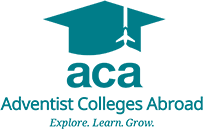PLEASE READ ALL THE WAY THROUGH:
In planning what to take, remember that closet and other storage space at international schools is often limited so pack only essentials. Check with your airline as to what limits apply to both checked baggage and carry-ons.
Other items, such as bulky clothing for winter, may be sent by mail . Please email ACA for recommendations on mailing. Regular mail can take up to 6-8 weeks for delivery (three months in Spain), but it can also take as little as 1-2 weeks depending on the mail service purchased (air/air freight). All packages will be charged customs fees when they arrive at international countries. For customs information be sure that USED CLOTHING is clearly indicated, and even then, there may still be a customs charge. It may be worth paying airline surcharges to take these items as extra baggage.
Have a copy of any prescribed medications you may be currently taking (signed by your doctor). If border control officials find you in possession of certain prescribed medications, it can lead to serious problems. Outside of the US, there is a list of controlled substances that are considered illegal in other countries (you may want to research this list). To prevent complications, carry required medication in clearly labeled containers and copies of any applicable prescriptions. Students taking regular prescription medications are advised to take at least a three month supply. Such students typically must purchase additional medication in their host country- which is not a problem as long as they are able to supply a pharmacist with the generic name of the medication, as well as the ingredients. But be aware that the medication may not contain the exact ingredients as the original prescription (due to certain ingredients being considered illegal).
In packing your carry-on bag, be sure to include personal toiletry items, a change of clothing, and any prescribed medication. Students have been occasionally separated from their luggage. However, be sure to stay within size and weight limits for carry-on bags to avoid paying an extra fee. It is wise to take an inventory of what you packed in your luggage for insurance purposes- in case your bags are lost or stolen.
Sometimes, you may unknowingly make evident that you are a stranger in a foreign land, making yourself a target for con artists or thieves. DO NOT TRUST YOUR BAGGAGE OR PERSONAL ITEMS WITH ANYONE other than an agent authorized to do so. Guard your carry-on baggage and other luggage whenever you travel, especially on trains, buses, and airports.
Important Suggestions:
- Do not leave home without your passport!
- Take $100 worth of local currency before entering the country, including coins or bills of small denominations for renting luggage carts.
- Credit/debit card (American Express not recommended)
- Phone charger while traveling
- Take additional scans of the first page of your passport and visa in case your physical passport is lost or stolen .
- Take an International Driver’s License and state or provincial driver’s license, if you are planning any international driving. Contact American or Canadian Automobile Association offices for details.
- Take adapter plugs for any electrical appliances being transported. Include a converter if the appliance is not for 220 volts (average American voltage is 110). Be sure voltage and wattage ratings of the converter are adequate for the appliances taken. Adapter plugs and converters are not the same; bring both.
- Bring warm clothes and comfortable close-toed shoes for school days as well as travel. School buildings are not heated as much as North Americans may be accustomed to – usually not above 65 degrees F. Think in terms of clothes that can be layered. It can be chilly in the morning, warm by midday and cold again at night. This is true at all campuses.
- Take a back pack. It will be handy for independent traveling.
- Keep in contact with your parents, regarding any changes in your itinerary while traveling, and once you have arrived safely to your destination. Tell your parents – “no new is good news”. If they do not hear anything from you or the ACA Director, it means you have arrived safely.
General Packing Suggestions:
- Warm winter jacket (waterproof)
- Lightweight jackets or windbreakers
- Sweaters for winter
- Hats, gloves, and scarves
- Umbrella
- Comfortable shoes (for plenty of walking or hiking)
- Sandals
- Waterproof boots (for snow in Austria, Germany, and France)
- Activewear (for exercise, sports, traveling, etc.)
- Bathrobe and slippers
- A set of towels
- Some everyday toiletries (shampoo/conditioner, body wash, face wash, shavers, etc.)
- Both warm and lightweight pajamas
- Clothes hangers
- Hairdryer, straightener, etc.
- Church clothes (easy to care for/do not get terribly wrinkly)
- Couple of clothes items for banquets or parties
- Prescription glasses/contacts
- Both regular and thick socks
- Dual-language dictionary
- Travel guide(s)
- Luggage locks and tags
- Camera
- Laptop
- Headphones
- Chargers for electronics
- Mosquito repellent (for Brazil and Italy)
- Modest swimwear
- Water bottle
- Small backpack, purse, fanny pack, cross body (to carry personal items closely while traveling)
- Photos of friends and family, and other personal items to decorate your room
- Some of your favorite snacks
Please note that very revealing or immodest clothing, and piercings, are discouraged.
Because needs and priorities differ so markedly among individuals, it is impossible to produce a list of “must take” items for a year abroad. It is only possible to indicate some of the items that previous students have indicated as having a high priority.


